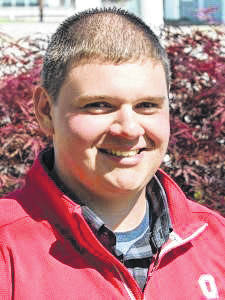
When was the last time you had your soil tested?
We can help with getting your soil tested. Now, the process has been modified just slightly due to the current public health situation, but it is still very simple. First, collect a dry soil sample of your field, lawn, or area of interest and visit greene.osu.edu or go.osu.edu/gcsoiltest. Agronomic soil samples cost $17 and are incremental for each additional. While turf/ornamental/lawn samples cost $21 and are incremental for each additional. Unsure how to take a soil sample? Visit greene.osu.edu to learn more. The OSU Extension Office accepts soil samples anytime online. Once you complete a short registration form, we will send you information to mail your soil sample to the lab for testing. We will get the results in approximately 10 business days or so and be in contact with you on next steps to maximize your growing space.
Why is soil testing important? Soil testing is an important diagnostic tool to evaluate nutrient imbalances and understand plant growth. The most important reason to soil test is to have a basis for intelligent application of fertilizer and lime. Testing also allows for growers and homeowners to maintain a soil pH in the optimum range (6.0-7.0), which keeps nutrients more available to the plant. Additional reasons include protection of our environment. We cannot afford to pollute our surface and ground waters by indiscriminate application of phosphorous or nitrogen fertilizers — and cost savings — why apply what you don’t need? Soil test results provide information about the soil’s ability to supply nutrients to plants for adequate growth and are the basis of deciding how much lime and fertilizer are needed.
What is being tested in a soil sample? The standard soil test includes determination of soil pH, available phosphorus, potassium, calcium, and magnesium levels as well as recommendations for lime and fertilizer. Other soil tests, such as ones for organic matter and zinc-manganese, are available for additional fees.
Southwest Ohio Coffee Talk
If you have questions regarding the up and coming growing season, I invite you to our virtual Southwest Ohio Coffee Talk Zoom. Beginning at 7:30 a.m. Thursday, April 9, the county extension offices of Clinton, Greene and Fayette counties along with OSU regional agronomist Elizabeth Hawkins will be hosting a weekly virtual coffee talk Zoom to interact with each of you providing some updates and to answer current questions and address issues that may come up throughout the growing season.
To kick off this new concept, we have asked Aaron Wilson, PhD with the Byrd Polar & Climate Research Center to give us a brief weather outlook for southwest Ohio. We will also discuss on-farm research ideas and getting ready for the planting season. In addition, each week we will be asking you “what’s on your mind” addressing questions, concerns and issues you may want addressed each week. These weekly sessions begin at 7:30 a.m. and last about an hour so you can be on your way to taking care of business on your operations. No registration is required, you can visit go.osu.edu/swohcoffeetalk to join the meeting. If you have ideas for potential topics, those can be submitted at go.osu.edu/TalkTopics. Simply join us from your phone, tablet or computer. If you have questions, email [email protected].
Taxes and Pesticide/Fertilizer Applicators
Finally, you are probably aware that there has been a tax filing extension until Wednesday, July 15. If any farmers need to still recertify to keep their pesticide license, there will be a window to get recertified when things start to return to normal. If you recertified and did not receive your new license yet, your “pink” copy you received at the end of training will suffice if you need to obtain restricted use pesticides and have not received your new card yet.


